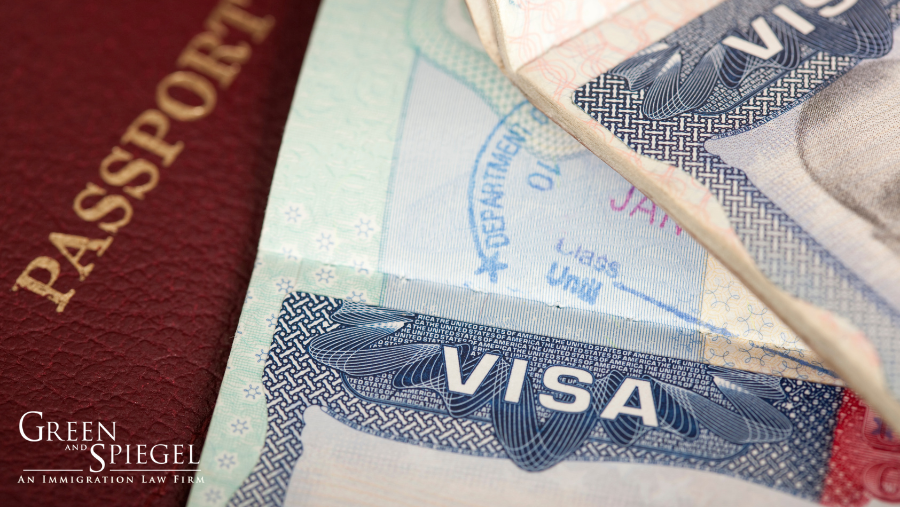On Friday, May 31, 2019, the Department of State (“DOS”) updated the online immigrant and nonimmigrant visa applications, Form DS-260 and Form DS-160, to include a question inquiring about the history of an applicant’s social media use. The new question requires applicants to fully disclose all the social media accounts they have used within the last five years by providing all their usernames and handles, but not passwords.
Applicants may select the social media platforms from a dropdown list, — which includes popular platforms based in the United States, and other countries –such as Facebook, LinkedIn, Instagram, Twitter, YouTube, Tumblr, Reddit, and more.The new question affects over 15 million immigrant and nonimmigrant applicants. Those who are excluded from answering this question includes most diplomatic and official visa applicants.
This change was proposed in response to the Presidential Memorandum issued on March 6, 2017, calling for the Secretary of State, Secretary of Homeland Security and Attorney General to implement protocols and procedures to enhance the screening and vetting of applications for visas and all other immigration benefits to increase the safety and security of the American people. As previously discussed, The DOS published a 60-day notice in the Federal Register on March 30, 2018 (83 FR 13807), and a 30-day notice in the Federal Register on August 28, 2018 (83 FR 43951), soliciting public comment on this proposed collection of social media information. The Office of Management and Budget (OMB) subsequently approved the Department of States’ proposal to expand the collection of social media identifiers on April 11, 2019, despite several public comments, expressing privacy concerns and disapproval of this proposal.
The DOS claims the information gathered will be used to confirm an applicant’s identity and determine visa eligibility under applicable U.S. law, which has raised great apprehension as this information is susceptible to misinterpretation and could create risks to privacy and free speech. Per the Office of Management and Budget’s Notice of Action, the DOS will be looking at public-facing content only and will not be requesting passwords for social media accounts in order to focus on detecting terrorist sentiment and activity to prevent dangerous individuals from gaining immigration benefits. The Brennan Center for Justice at the NYU School of Law has published a research report that outlines several takeaways from similar pilot programs in which DHS agents misinterpreted social media posts and we unable to reliably match social media accounts, which ultimately resulted in incorrect visa denials.
In The Department of State’s Final Supporting Statement for Paperwork Reduction Act Submission the DOS states, “[w]ithin consular and fraud prevention sections of the Department’s overseas posts, public-facing social media information may be reviewed to assess potential visa fraud that would lead to a conclusion that the applicant is not eligible for a visa. For example, information on social media pages or posts may be used to validate legitimate relationships or employment required for visa eligibility, to identify indicia of fraud, or to identify misrepresentations that disguise potential threats.” This statement goes beyond the claim that social media information will be used to detect terrorist sentiment and activity for the safety and security of the American people. Overall, the social media information gathered will be used to deny visas based on specific statutory visa ineligibilities and not on the basis of race, religion, ethnicity, national origin, political views, gender, or sexual orientation.
It should be noted that visa applicants who credibly represent that they have not used social media will not be adversely affected by not providing a social media handle. However, those applicants who purposely do not disclose their social media history may be considered to willfully misrepresent a material fact, potentially resulting in a lifetime ban from entry. Therefore, we do advise disclosing all social media accounts, even if they were deleted, if they were active within the last five years as traces of these deleted accounts may still be found.
Additional questions that were proposed by the DOS, but have not yet been added to the online immigrant and nonimmigrant visa applications include the following:
- An optional question that asks applicants if they wish to provide any other social media identifiers for platforms they have used within the last five years to create or share content not listed in the initial social media question;
- A mandatory question asking whether an applicant has ever been removed or deported from any country;
- A mandatory question inquiring about whether an applicant’s family member has engaged in terrorist activity, including providing financial assistance or other support to terrorists or terrorist organizations, in the last five years;
- A mandatory question asking the applicant for any other telephone numbers used during the last five years besides their primary and secondary numbers; and
- A mandatory question asking whether the applicant has used any other email addresses for personal purposes during the last five years.
Green and Spiegel will be closely monitoring any further updates to these online applications, as well as any further limitations or changes the Trump Administration is making to US Immigration. If you have any questions regarding if and how USCIS’ announcement affects your pending nonimmigrant or immigrant visa application, please do not hesitate to contact our office.




